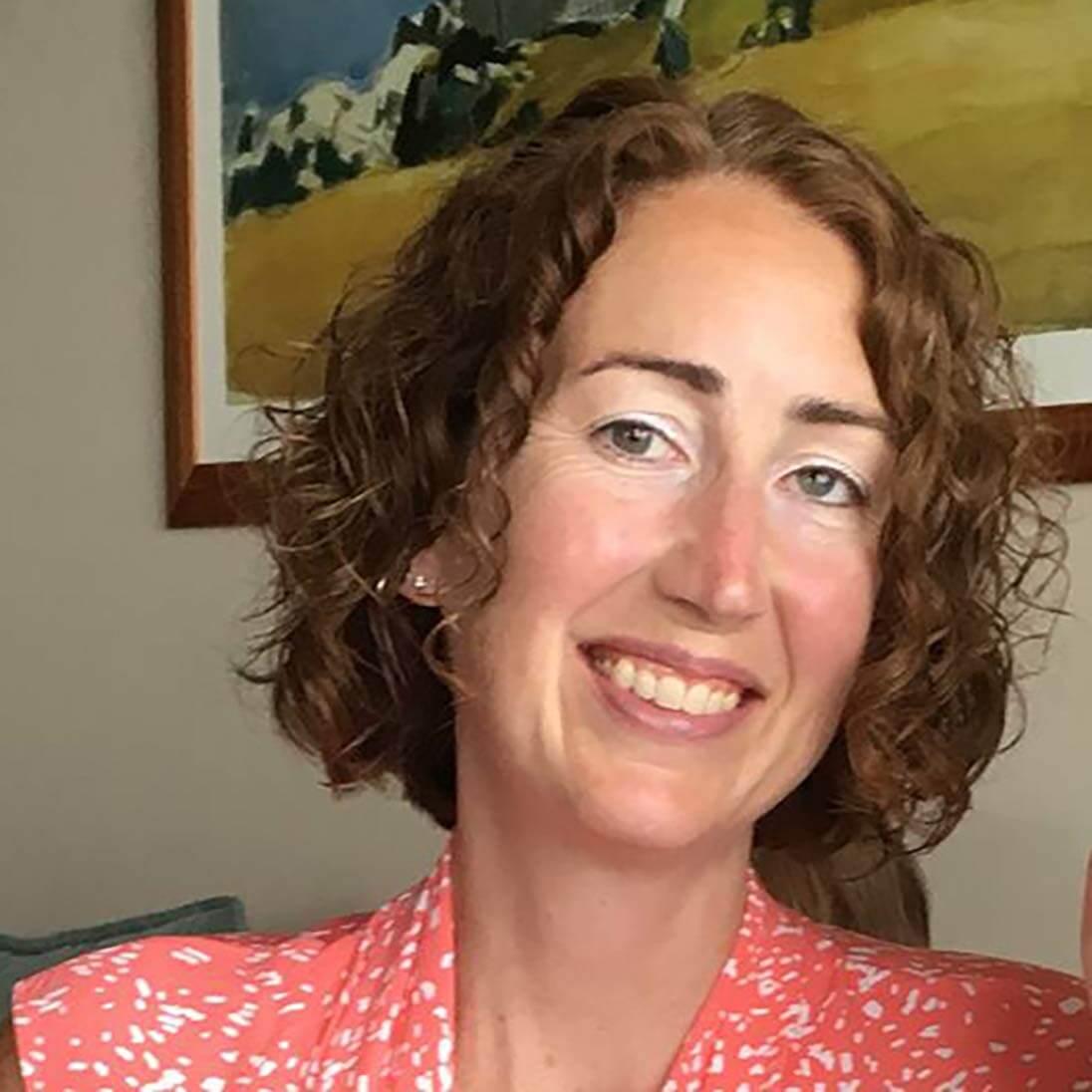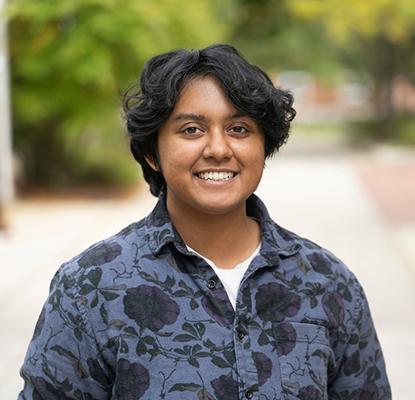Life Sciences
Exploring the entirety of the natural world, from tiny microbes to complex ecosystems
Introduction
We live on a vast planet, alongside billions of other living organisms—both visible to the naked eye and not. Life Sciences introduces students to the interdisciplinary nature of the life sciences and explores how we might best apply the knowledge we gain to better our community, our nation and the world we share with our fellow inhabitants.
Discussing a range of topics, including molecular biology, human genetics, ecology, evolution, conservation and ethics, students in this Scholars program seek to answer big questions:
- How do we use our knowledge and skills to improve various aspects of human health?
- How do we create a sustainable future for all life forms?
- How do the life sciences interact with our daily lives (religion, politics, relationships, business, the arts)?
Ultimately, students discover how they might build toward careers to help their fellow human beings and other life on this planet.
This program offers a close community of students who share a common passion for life sciences, broadly defined, and an enduring concern for the well-being of others.
Colloquium and Lecture Topics
- The story of the human body: Evolution, health and disease
- Future city: Urban nature as healing gardens
- Professional development: Finding an internship
- Movie: The Serengeti Rules
- Cathedrals of Science: The human scientists behind science
- Individual journeys defining success for Life Sciences Scholars
The program actively encourages involvement in opportunities to explore the extensive breadth of professions related to the sciences. The relationships and experiences [of Life Sciences] go beyond the typical expectations associated with large, competitive education institutions.
Other Learning Opportunities
Life Sciences Scholars students connect what they have learned in class with practical experiences outside the classroom. Students:
- Learn from working scientists through lectures, such as at the Carnegie Institute for Science;
- Take local and regional field trips to places—such as the U.S. Botanic Gardens and western Maryland—that underscore the connection of the life sciences to the real world; and
- Work individually or in small groups to research and prepare presentations on selected topics each semester.
They build upon that experience in their second year in the program to participate in research or an internship. Life Sciences students have:
- Participated in cancer research at the National Institutes of Health;
- Shadowed a dentist in the Dominican Republic as well as in his local practice; and
- Interned in the Green Office Program in the university's Office of Sustainability.
Finally, we offer students the opportunity to participate in global learning experiences specially tailored for their interests. Past trips have visited biodiversity-rich locations such as Alaska, Australia and Belize.
Curriculum Overview
Over the two-year program experience (four semesters), students will complete 2–3 Life Sciences–related science courses (including 2 specific lab courses) that will count toward their Life Sciences Scholars citation. In most cases, these will also fulfill General Education requirements. Note that your Scholars courses—colloquium, practicum and supporting course(s)—will generally be in addition to any courses you take to satisfy major requirements.
The following table represents a typical two-year curriculum, but individual schedules may vary. Details about courses and requirements can be found on the Life Sciences Citation Checklist.
| SEMESTER | COURSES | CREDITS |
|---|---|---|
| Freshman Fall | Scholars Colloquium | 1 credit |
| Ecology and Evolution + Lab (exceptions may apply for those in non–Life Sciences majors) | 4 credits | |
| General Chemistry + Lab (exceptions may apply for those in non–Life Sciences majors) | 4 credits | |
| Introduction to the University | 1 credit | |
| 1–2 courses toward degree and major requirements | 3–7 credits | |
| Freshman Spring | Scholars Colloquium | 1 credit |
| Molecular and Cellular Biology + Lab (exceptions may apply for those in non–Life Sciences majors) | 4 credits | |
| Academic Writing | 3 credits | |
| 2–3 courses toward degree and major requirements | 6–9 credits | |
| Sophomore Fall | Scholars Colloquium | 1 credit |
| 4–5 courses toward degree and major requirements | 12–16 credits | |
| Sophomore Spring | Scholars Practicum | 2–3 credits |
| 3–4 courses toward degree and major requirements | 9–12 credits |
Sponsoring College
Residence Hall
Centreville Hall
Office Address
1212 Centreville Hall
Office Phone
Faculty


Social Media Etc.
Life Sciences News
Beloved Life Sciences Director Reid Compton Steps Down From Scholars
Reid Compton, a longtime fixture of the Life Sciences Scholars program, has stepped down from his role as program director after nearly 10 years.Compton was only the second person to head the Life Sciences program, which has existed since College Park Scholars’ founding about 25 years ago. Though a trained biomedical scientist, Compton made the decision to keep the program’s broad approach to the life sciences to include natural history, evolution and conservation, rather than restrict it to a premedical program. He wanted students to appreciate that there is more to the living world than humans and their diseases.
How This Life Sciences Scholar Taught the UMD Community About Self Care
When Anthony Sartori was a freshman at the University of Maryland (UMD), he recognized the need for a community-wide revitalization of care—something that would connect students with themselves and with others. “I came to college lacking self-care strategies,” Sartori says. “No one taught me how to properly take care of myself or what I need to do when I’m feeling overwhelmed.” So, the Life Sciences Scholar began having conversations with other College Park Scholars students, as well as Scholars Assistant Director Ben Parks. He realized that many others felt the same, and were interested in providing and facilitating self-care opportunities for their peers.
Life Sciences Scholar Writes Bill to Promote Organ Donation Education
Organ donation was not something of particular concern to Shani Kamberi a few years ago. She recalls watching a 15-minute video on it during her driver’s education class one summer, but the issue didn’t really click. Then came her senior year in high school. That was when Jonathan Bos, Kamberi’s AP English Literature teacher at Walter Johnson High School in Bethesda, Md., spoke to the class about organ donation. He had a personal story to tell, having received a heart transplant in 1999.
Scholars Recognized at 2017 University Awards
Scholars students took home several top awards at the 36th University Student Leadership Awards on Sunday, May 7. University Awards recognized Maryland Medallion Society members and Byrd/Elkins Finalists who have contributed significantly to the general advancement of this university’s interests and displayed outstanding involvement and leadership in campus activities. These students are the university’s top 20 senior students; two Scholars alumni were recognized by the Maryland Medallion Society:
Life Sciences Alum Opens Private Audiology Practice
Dr. Melissa Wikoff, a University of Maryland graduate who earned her Life Sciences Scholars citation in 2004, opened her own audiology practice in Marietta, Georgia. "My experience with Life Sciences Scholars has made a huge impact on my career and who I am today, socially and educationally,” Wikoff said. “Life Sciences gave me the foundation for my love of science, anatomy, and how hearing works." According to their website, Peachtree Hearing “uses the latest technology, scientifically proven techniques, and compassionate personalized care” to treat their patients. Wikoff specializes in the diagnosis and treatment of dizziness, which is typically due to disorders of the inner ear.
